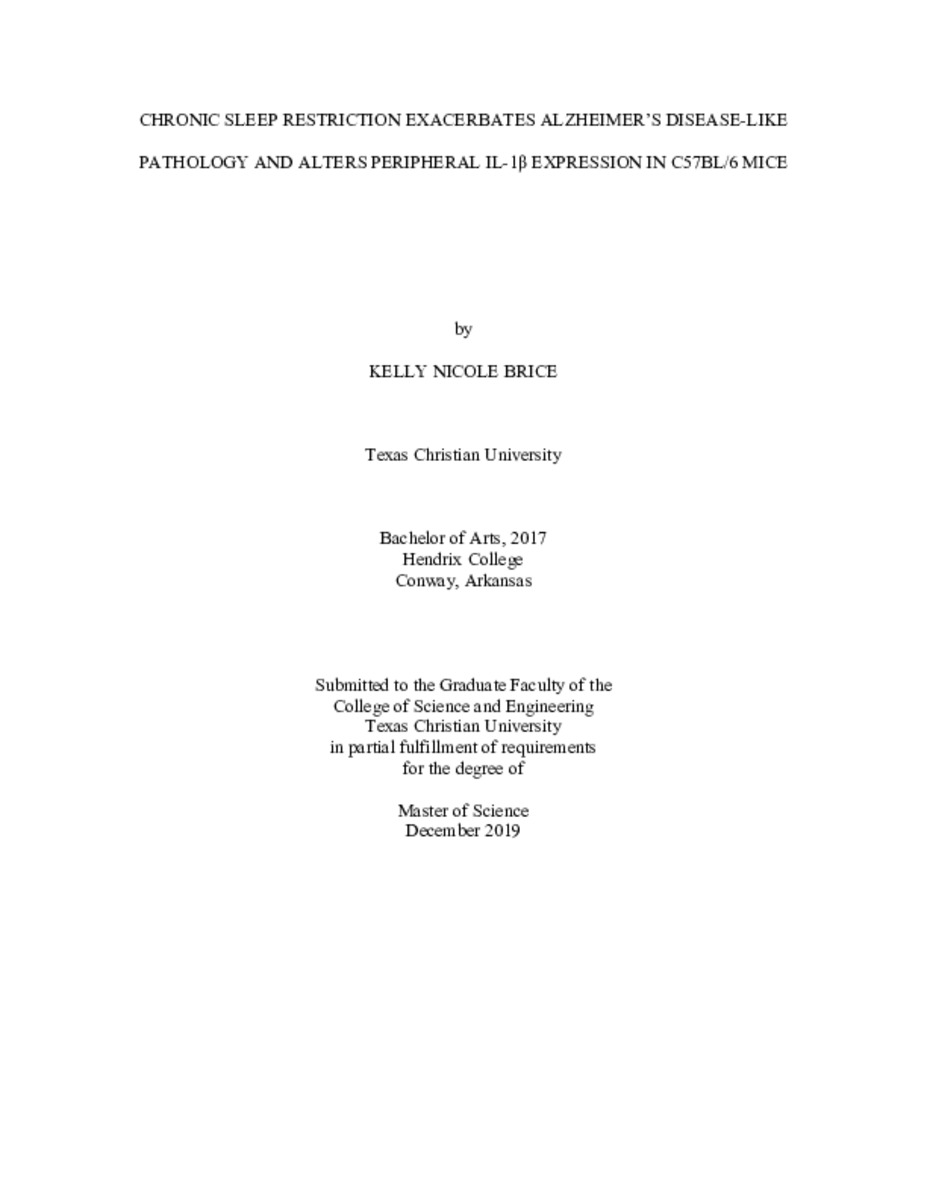Chronic Sleep Restriction Exacerbates Alzheimer's Disease-Like Pathology And Alters Peripheral Il-1beta Expression In C57BL/6 MiceShow full item record
| Title | Chronic Sleep Restriction Exacerbates Alzheimer's Disease-Like Pathology And Alters Peripheral Il-1beta Expression In C57BL/6 Mice |
|---|---|
| Author | Brice, Kelly Nicole |
| Date | 2020 |
| Genre | Thesis |
| Degree | Master of Science |
| Abstract | Alzheimer’s Disease, a devastating neurodegenerative disease characterized by amyloid-beta plaques and neurofibrillary tangles, is the 6th leading cause of death in the U.S., and its prevalence is increasing. A common feature of Alzheimer’s is a disrupted sleep/wake cycle. 35.3% of adults in the U.S. get less than the minimum 7 hours of sleep per night recommended by the National Sleep Foundation. Interestingly, evidence suggests a bidirectional relationship between sleep loss and Alzheimer’s. We hypothesized that six weeks of sleep restriction would lead to increased amyloid-beta in the hippocampus and cognitive deficits in C57BL/6 mice. Further, we hypothesized that these effects would be exacerbated by intraperitoneal LPS administration. Chronic sleep restriction itself was associated with cognitive deficits in contextual fear conditioning, increased hippocampal amyloid-beta, and alteration in the circadian fluctuation in serum IL-1ß. Furthermore, LPS administration coupled with chronic sleep restriction led to exacerbated cognitive dysfunction. |
| Link | https://repository.tcu.edu/handle/116099117/36204 |
| Department | Psychology |
| Advisor | Boehm, Gary W. |
Files in this item
This item appears in the following Collection(s)
- Masters Theses [4182]
© TCU Library 2015 | Contact Special Collections |
HTML Sitemap



